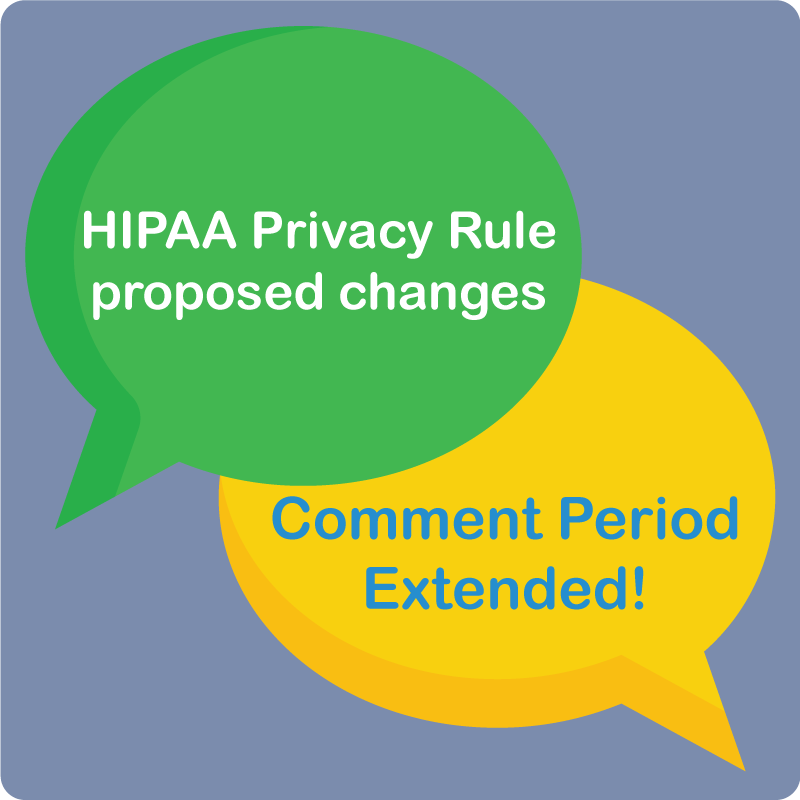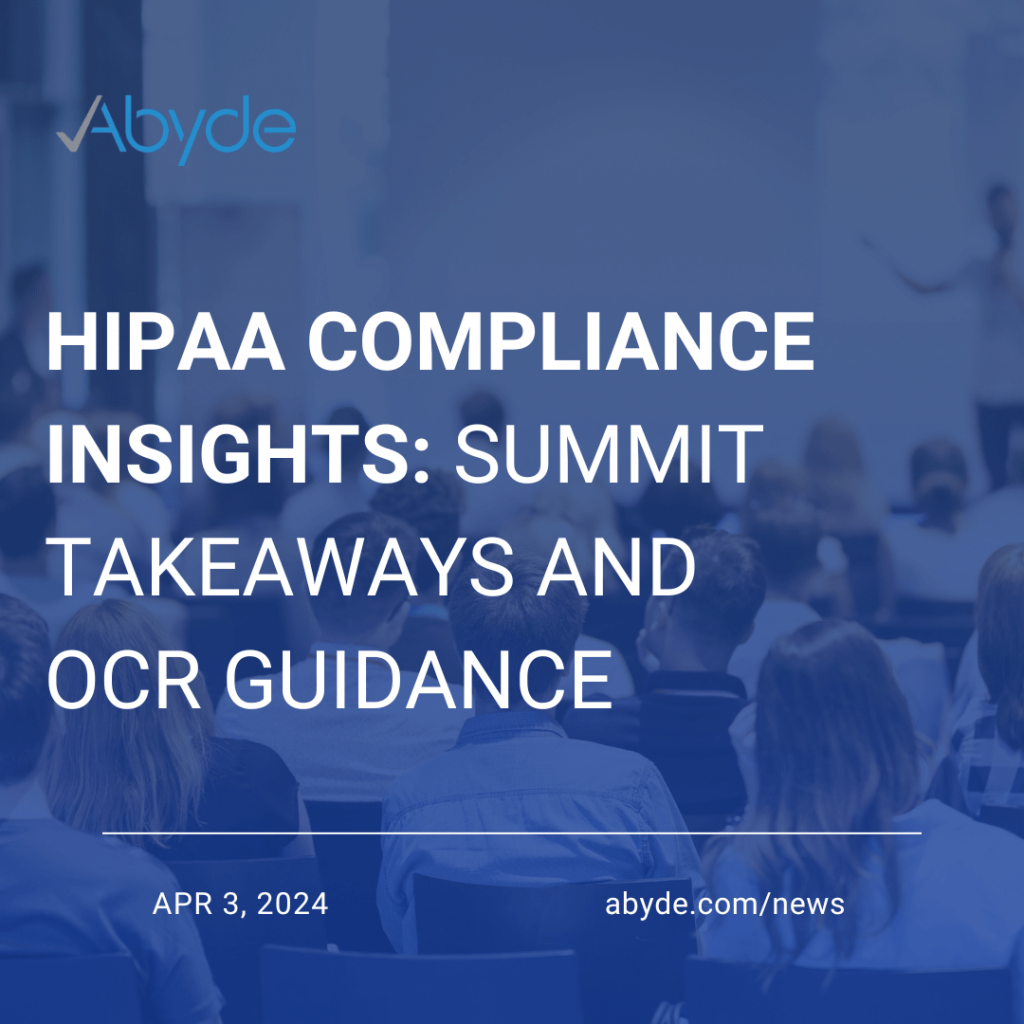April 28, 2021 You’ve got mail! The Office for Civil Rights (OCR) just issued an alert warning of a potential HIPAA scam hitting your mailbox that you should be on the lookout for. The government was recently made aware that postcards disguised as official OCR communication were being sent to health care organizations informing recipients that they needed to complete a “Required Security Risk Assessment” and directing that completed assessments be sent to a non-governmental marketing consulting website that has since been taken down. This hand-delivered scare tactic came from a private entity and should NOT be mistaken as an official notification from the OCR or the U.S. Department of Health and Human Services (HHS). In addition to keeping an eye out for these counterfeit postcards, the OCR recommends verifying any and all “government” communications to ensure they’re actually official and alerting all staff members to do the same. They suggest looking for the OCR email address, which will end in @hhs.gov, and recommend asking for a verification email from the OCR investigator’s hhs.gov email address. The OCR also provides the addresses for their HQ and Regional Offices which can be found at here. and should be confirmed are properly listed in any communications received. This isn’t the first and probably won’t be the last time we receive alerts of these types of HIPAA scams. Back in August of last year, a similar incident occurred where fraudulent postcards labeled on the OCR’s behalf were notifying healthcare organizations to complete a mandatory HIPAA compliance risk assessment and directing them to another marketing consulting service website. So while fake postcards seem to be a common approach, it’s important to be aware of any and all types of HIPAA scams, especially as hackers and other organizations with malicious intent get more and more creative in their efforts. Though this postcard is by no means an official communication from the government, the mandatory Security Risk Analysis (SRA) at its focus should not be overlooked. So if fulfilling this HIPAA requirement brings more cause for concern than the scam itself, you’re not alone. In fact, the OCR’s latest audit industry report found that only 14% of covered entities and 17% of business associates had a proper SRA in place. So if your practice falls into the large majority of those that aren’t up to these HIPAA standards, this OCR alert should give you even more reason to do so and a software solution like Abyde gives you all the tools and resources needed to get there.
Comment Period Extended for Proposed HIPAA Privacy Rule Modifications
March 11, 2021 HIPAA law is officially getting with the times thanks to the proposed Privacy Rule modifications that are giving the “prehistoric law” a new modernized look. While the planned updates were officially announced last December, the Department of Health and Human Services (HHS) has just added a 45-day extension on the comment period – giving the public some more time to weigh in on what they want they want the updated legislation to cover. The original HIPAA Privacy Rule came on the scene in 2003 – you know, like when disposable cameras and listening to Shake Ya Tailfeather by Nelly on your iPod were cool? With as much as technology has changed the world around us, it only makes sense that the laws governing data protection follow suit. Especially since they haven’t changed since being created in the “stone-ages.” The new proposed changes go hand-in-hand with the evolving needs of patients and providers to address the issues of patient right of access and “unnecessary regulatory burdens.” Each of these have proven to be trending areas of focus in recent OCR enforcement efforts with three out of the four settlements announced in 2021 resulting from right of access complaints. But improving patient rights and boosting care coordination isn’t only in the government’s best interests, “OCR anticipates a high degree of public interest in providing input on the proposals because the HIPAA Privacy Rule affects nearly anyone who interacts with the health care system,” Acting OCR Director Robinsue Frohboese stated in response to the recent announcement. “The 45-day extension of the comment period to May 6, 2021, will give the public a full opportunity to consider the proposals and submit comments to inform future policy.” Now, we know what you’re probably thinking – is there really a high degree of public interest over HIPAA???? While the idea might come as a bit of a surprise – the major spike in patient complaints, data breaches, and government enforcement seen over just the past year have given the law some new-found fame. And since everyone loves a good comeback story, this HIPAA revival has proven that staying up on the latest and greatest in regulation changes is worth keeping on your radar. So, even though the new extension buys you some more time to comply with the proposed updates – it’s never too early to meet mandatory HIPAA requirements. Unfortunately, the reality is that most practices today would need to perform an excavation, chiseling through mountains of dust, to bring their HIPAA compliance program out of the dark ages. If your compliance program resembles something that hasn’t been touched since Tom ruled MySpace, getting up with the times is not an option and upgrading to an electronic HIPAA solution is the perfect place to start. Want to put in your ‘two cents’ on the proposed Privacy Rule updates? Just visit the Federal Register to read the official rule proposal and submit your comments!
OCR Settles 15th Right of Access Violation
February 10, 2021 The Office for Civil Rights (OCR) started 2021 off with some heavy hitters – including a $5.1 MILLION fine only 15 days into the year – but their fifteenth HIPAA right of access settlement (and counting – we’re taking bets on how many they get in before the end of the year) emphasizes they’re not just going after the big guys when it comes to keeping HIPAA programs in check. Renown Health, P.C., a private, not-for-profit health provider out of Nevada, became the third HIPAA violator of the new year after failing to meet HIPAA right of access requirements back in 2019. The violation came with a hefty penalty of $75,000, along with a 2-year corrective action plan. So what happened? This time two years ago, the OCR received a complaint that Renown Health failed to fulfill a patient’s request for an electronic copy of their medical and billing records. In this particular instance, the patient had requested to have it sent to a third party – something that HIPAA not only allows for, but expects providers to fulfill. Singing the same tune as last year’s many access-related fines, it wasn’t until after the OCR got involved and investigated further that Renown Health finally provided access to all of the requested records. Acting OCR Director, Robinsue Frohboese, weighed in on the latest settlement, “access to one’s health records is an essential HIPAA right and health care providers have a legal obligation to their patients to provide access to their health information on a timely basis.” What this means for you With 15 right of access settlements under their belt, the OCR has made it clear that providing proper access in the way records are requested is key – not to mention the ticking clock (30 days, or less depending on the state) that goes with any record request. With the proposed changes to the HIPAA Privacy Rule suggesting an even shorter time frame to respond to record requests, providing timely access should be on every practice’s radar. If it’s not, or even if it is, making sure to have documented policies around how records are provided and recording requests in a written format is key to preparing your practice should you wind up as part of the OCR’s right of access crusade. Not sure where your current HIPAA program stands, especially when it comes to patient’s access rights? Schedule a complimentary consultation with one of our HIPAA experts today to see what you might be missing before it’s too late!
HIPAA Compliance Insights: Summit Takeaways and OCR Guidance
April 3, 2024 Happy Wednesday! Let’s crush the rest of the week! While we are battling our Hump Day blues, let’s turn this Wednesday into a learning opportunity. A HIPAA Summit was held, introducing new updates to HIPAA legislation. Want the quick 411? You’ve come to the right place! Part 2 Final Rule We go into more detail about this in our article here, but new legislation regarding the confidentiality of Substance Use Disorder patient records has been released. You need to know that: The full rule can be found here. Cybersecurity Resource Revision The National Institute of Standards and Technology, or NIST released some new resources for cybersecurity measures. These resources include explanations of the HIPAA Security Risk Analysis and actionable steps to implement these measures. To read more about these resources, click here. HIPAA Online Tracking Technologies Online tracking technologies have been at the forefront of recent compliance cases like the 300,000 dollar fine given to the NewYork-Presbyterian Hospital due to website tracking. The OCR is on it, issuing guidance on how to properly use tracking technologies. What you need to know is that when using tracking technologies: Enforcement Highlights Unfortunately, we’ve seen a major spike in patients impacted by HIPAA. In 2023, over 134 MILLION were exposed to a large HIPAA breach. What You Can Do First, sorry for the information overload, but it’s vital to know for your practice. By following these guidelines, you’ll provide an even more positive and secure experience for your patients. An easy way to stay compliant is with Abyde. The Abyde software offers a plethora of compliance resources, making compliance simple. We offer the latest information and entertaining training for your practice, always keeping you on your A-game. Want to avoid common HIPAA mistakes? Use Abyde! We turned the Security Risk Analysis into an intuitive questionnaire that can be completed in minutes. We also offer dynamically generated documentation, including Business Associate Agreements that can be completed in seconds! Want to see where your compliance currently stands? Email us at info@abyde.com and schedule a consultation here!
OCR Continues HIPAA Right of Access Fine Streak, Announces 12th Settlement
November 19, 2020 Reporting new HIPAA settlements has become a weekly routine this month (we’ve got our calendars marked for next week’s already), and after today’s announcement on the Office for Civil Rights (OCR) 12th right of access initiative settlement (the third in November), we now have enough patient right of access fines to last us a whole year. This week’s HIPAA headline goes to the University of Cincinnati Medical Center, LLC (UCMC), an academic medical center that provides healthcare services to the Greater Cincinnati Community. UCMC agreed to a $65,000 payout as well as a 2-year corrective action plan with the OCR to settle a violation of (you guessed it) the HIPAA right of access standard. The by-now familiar story began back in May of 2019, when the OCR received a complaint that UCMC failed to respond to a patient’s request that her electronic health records (EHR) be sent directly to her lawyers on February 22, 2019. After further investigation and a little push from the OCR, the medical center finally provided the requested records in August of that year. While we’ve seen more than a handful (2 handfuls plus two fingers to be exact) of patient right of access fines over the past year, this specific settlement is a great example of not only failing to provide patient records in a timely manner, but also in the proper format they were requested in. It is required under HIPAA law to be able to provide patients with a copy of their records in the format they request – either in paper or electronic form – as well as have the ability to transmit records directly to a third party if specified. If it isn’t possible to provide records the way a patient requests, the covered entity must agree to an alternative method with the requester. Emphasizing the importance of providing records in the format requested, OCR Director Roger Severino added that the “OCR is committed to enforcing patients’ right to access their medical records, including the right to direct electronic copies to a third party of their choice. HIPAA covered entities should review their policies and training programs to ensure they know and can fulfill all their HIPAA obligations whenever a patient seeks access to his or her records.” Today’s settlement brings the running count of 2020 HIPAA fines to a total of $13,291,500 with 6 weeks still left in the year. If the weekly fine trend continues, we could expect at least 6 more HIPAA settlements and a whole lot of $$$ to come rolling in before 2020 finally ends. While we’re all looking forward to 2020 calling it quits, 6 more fines would blow 2019’s enforcement records out of the water. With annual HIPAA deadlines right around the corner and weekly examples of why you should ensure your practice is compliant, we couldn’t think of a better time to add HIPAA to the top of your to-do list!
OCR Highlights Asset Log as Key HIPAA Recommendation
August 25, 2020 Earlier today, the Office for Civil Rights (OCR) sent out their seasonal Cybersecurity Newsletter on a very timely and relevant topic – the importance of keeping track of devices that contain electronic protected health information (ePHI). The OCR’s newsletter highlights two important things for independent practices: first, that having an asset log is the recommended method for tracking and thus safeguarding devices that contain ePHI, and second, that the OCR views practice’s lack of knowledge around where their devices are as a key area of concern. Part of the HIPAA Security Rule, practices are required to implement the necessary technical safeguards covered in the Security Risk Analysis (SRA) – including encrypting and securing their devices that contain sensitive ePHI. While an asset log isn’t directly required under HIPAA, the OCR highly recommends the creation and maintenance of an IT asset inventory to better understand where ePHI may be stored and strengthen overall compliance with these requirements. What does an Asset Log entail? We know it’s hard to keep tabs on everything within your practice, but when it comes to your devices keeping inventory is key. As the OCR’s newsletter highlights, the asset log should be a comprehensive list of all IT assets with corresponding descriptive information. The OCR notes that this list could include ALL devices, even those that don’t access ePHI directly, as they could contain ePHI unknowingly or be an entry point for cyberattackers to your network. Your list should include: When documenting these assets, Abyde recommends including all the following information: Additionally, it is important to regularly update your asset log as devices are moved around by location or by assigned staff members. Just like an SRA, your asset log should not be a ‘one and done’ project, and should instead be reviewed regularly. You should also track when devices are disposed of, as properly disposing of devices that contain ePHI is a common cause of HIPAA violations. No matter the size of your practice, creating and maintaining a thorough asset log isn’t an easy task. With a program like Abyde, our built in Asset Log covers all the OCR recommendations and then some – helping you track devices at high risk and making your IT inventory intuitive. Having the ability to access your asset log within a cloud-based solution like Abyde makes reviewing and updating inventory a breeze, and helps ensure you’re complying with all the right technical safeguards.





